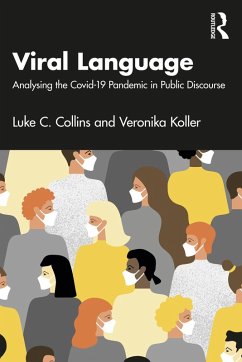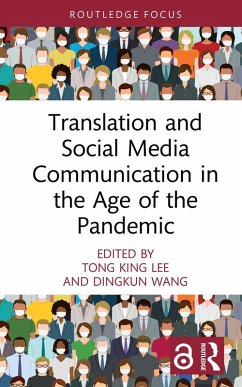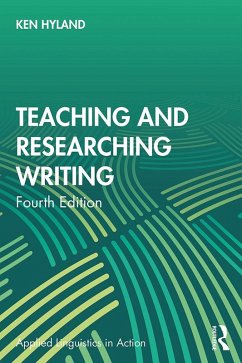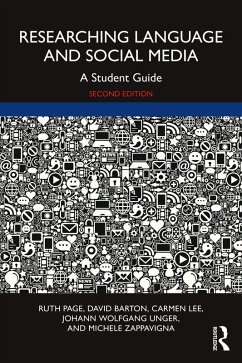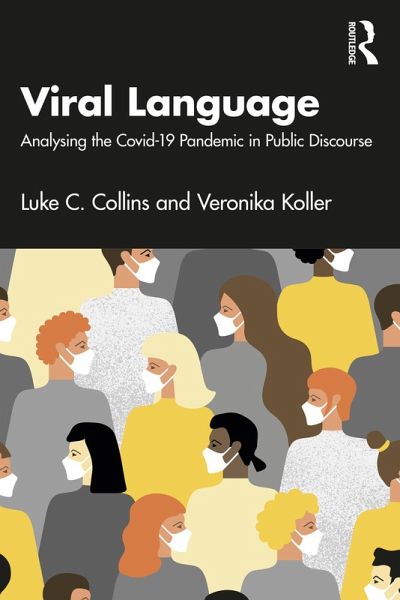
Viral Language (eBook, ePUB)
Analysing the Covid-19 Pandemic in Public Discourse
Versandkostenfrei!
Sofort per Download lieferbar
39,95 €
inkl. MwSt.
Weitere Ausgaben:

PAYBACK Punkte
20 °P sammeln!
Viral Language considers a range of different types of public communication and their discussion of the Covid-19 pandemic as a way to investigate health communication. The authors introduce and apply a range of approaches informed by linguistic theory to investigate experiences of the pandemic across a variety of public contexts. In doing so, they demonstrate how experiences of health and illness can be shaped by political messaging, scientific research, news articles and advertising.Through a series of case studies of Covid-related texts, the authors consider aspects of language instruction, ...
Viral Language considers a range of different types of public communication and their discussion of the Covid-19 pandemic as a way to investigate health communication. The authors introduce and apply a range of approaches informed by linguistic theory to investigate experiences of the pandemic across a variety of public contexts. In doing so, they demonstrate how experiences of health and illness can be shaped by political messaging, scientific research, news articles and advertising.
Through a series of case studies of Covid-related texts, the authors consider aspects of language instruction, information and innovation, showcasing the breadth of topics that can be studied as part of health communication. Furthermore, each case study provides practical guidance on how to carry out investigations using social media texts, how to analyse metaphor, how to track language innovation and how to work with text and images.
Viral Language is critical reading for postgraduate and upper undergraduate students of applied linguistics and health communication.
Through a series of case studies of Covid-related texts, the authors consider aspects of language instruction, information and innovation, showcasing the breadth of topics that can be studied as part of health communication. Furthermore, each case study provides practical guidance on how to carry out investigations using social media texts, how to analyse metaphor, how to track language innovation and how to work with text and images.
Viral Language is critical reading for postgraduate and upper undergraduate students of applied linguistics and health communication.
Dieser Download kann aus rechtlichen Gründen nur mit Rechnungsadresse in A, B, BG, CY, CZ, D, DK, EW, E, FIN, F, GR, HR, H, IRL, I, LT, L, LR, M, NL, PL, P, R, S, SLO, SK ausgeliefert werden.




